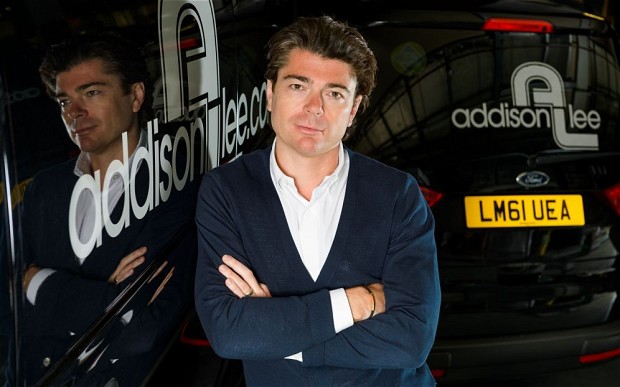LAW COMMISSION REPORT: Regulating taxis and private hire vehicles. Press release.
Taxis and private hire services, which include minicabs, are an essential link in the transport network of England and Wales, with passengers spending in excess of £2.5 billion a year on fares.
But the law that governs how the taxi and private hire trades operate is old, inconsistent and struggling to deal with internet-driven changes in passenger behaviour.
In a report published today, the Law Commission is recommending reforms that would update the law and make it clearer for those working in the taxi and private hire trades and their passengers.
The Commission’s report recognises the value to passenger choice of the two-tier system of private hire vehicles – which must be pre-booked, and taxis – which can use ranks or ply for immediate hire. It makes recommendations to retain and reinforce the distinction.
Passenger safety is at the forefront of the Commission’s reforms. It is recommending that standards be set nationally for public safety, accessibility and environmental impact. For the first time, passengers of taxis and private hire vehicles could confidently expect consistent levels of safety and quality wherever they travel. Under the reforms:
- all private hire vehicles, including stretch limos and other “novelty” vehicles, would be subject to the same standards, wherever they operate
- taxis would be subject to a comparable set of standards, which could be added to locally, allowing licensing authorities to choose to set higher standards where they want to, and
- local licensing authorities would have the power to inspect and, if necessary suspend, any vehicles working within their areas, wherever they are licensed.
These reforms would not impact on the famous black cabs in London, where standards of safety and accessibility are already high. But pedicabs in the capital will fall within taxi licensing for the first time, allowing Transport for London to set appropriate standards. Cars used for weddings and funerals, however, will continue to be exempt from regulation.
Among the measures designed to improve the accessibility of services for disabled people, the Commission is recommending a national requirement for taxi and private hire drivers to take disability awareness training. And local licensing authorities would be able to impose a duty on taxis to stop when they are hailed, bringing to an end the unacceptable practice of drivers passing by disabled people.
There would be stiffer penalties, too, for touting (actively soliciting customers), which poses a significant safety risk. Under the Commission’s reforms, licensing authorities would be given the power to impound any vehicles used in connection with touting.
Passengers are increasingly turning to the internet to book their taxi and private hire services. In a move to help the private hire trade respond, the Law Commission is recommending that operators should no longer be barred from accepting bookings or using drivers and vehicles from outside their licensing areas.
Licensing authorities should be able to continue to limit taxi numbers, provided they conduct a regular review of the service being provided. Restrictions on the numbers of taxis in some areas have led to inflated “plate values”.
To protect the investment of existing drivers, the Commission recommends that the trade in licences should be allowed to continue. But, in areas where quantity restrictions are introduced for the first time, licenses should not be tradable
Nicholas Paines QC, the Law Commissioner leading on the project, says:
“The taxi and private hire trades are of enormous value to England and Wales. They provide a living for thousands of operators and drivers, and many more thousands of people depend on them to go about their daily lives.
“The reforms we are recommending will clarify the legal distinction between taxis and private hire services, and retain the valuable qualities of both. They will equip operators, drivers and their vehicles to meet the demands of a modern passenger-service trade, while making passenger safety and accessibility paramount.”
CLICK ON LINKS BELOW FOR FULL REPORT AND SUMMARY:
lc347_taxi-and-private-hire-services
Knowledge test for taxi drivers in South Somerset

TAXI drivers in Chard and Ilminster will have to pass a knowledge test if they want a licence, it has been announced.
South Somerset district councillors have approved plans to introduce the test for private hire and hackney carriage drivers.
Drivers will take the test as part of the licence application process – those who currently hold a licence will have to take a test in the next two years.
The test will consist of multiple choice questions and will be taken at the council’s offices in Brympton Way, Yeovil.
The council’s proposals were approved on Thursday night and a report said: “For some time both officers and members have become aware of an increase in the number of applications for driver’s licences.
“A proportion of these have been from outside the area and occasionally from different regions, with little evidence to suggest any intention to work in this area.
“It is unclear why there has been an increase in applicants for driver’s licences to the council, because a licence issued in South Somerset only has limited use outside the area – however, officers speculate it is due to perhaps a more rigorous and expensive application process at other authorities.
“The compound effect has been an excessive demand for licences in South Somerset.
“Officers are aware that there are now a disproportionate number of drivers applying for licences in South Somerset with limited geographical knowledge of the area.”
The test will be similar to that used in London to ensure taxi drivers have a sound knowledge of the area.
Christine Sunter, of Angel Taxis, had mixed views about the test but said that if it kept customers happy it was a good idea.
James Logsdon, of BW Taxis, which has 25 drivers, said: “It is a good idea because of the rural location where we work, because sometimes sat-navs do not always get it right.
“But technology makes taxi driving an easy job and when you are covering a huge area with little villages, some of those aren’t even on an AA map.
“I am not sure how they are going to get it accurate and a fair test.”
Mother left her two-year-old baby in the back of a London cab
Minicab operator stays streets ahead thanks to technology
Boss of Addison Lee relaxed about threat from taxi apps, reports Scott Campbell
Addison Lee boss Liam Griffin isn’t best pleased by the current heatwave.
“We’re the only business that smiles when it rains,” he says. During a recent rainy day, the number of jobs processed by Addison Lee surged 50pc.
This explains why his eyes dart constantly towards a giant bank of screens at the company’s HQ. One displays the weather, while another has hundreds of coloured dots zooming around a map, tracking the location of each of the company’s more than 4,000 drivers across the capital.
Staff are constantly checking flight times, monitoring progress and talking to drivers via radio. By leveraging this data, Addison Lee makes sure that its branded people carriers turn up on time and deliver customers to their destinations without a hitch.
“We check that they are heading to the right place on time, so we can anticipate any delays and prevent them before they happen,” Mr Griffin explains.
The Addison Lee empire was started by Mr Griffin’s father, John, in 1975. The firm launched with one vehicle in Battersea, but the fleet now carries out 20,000 jobs a day and turns over £200m.
“When I joined in 1996, we only had 180 cars and were turning over £2m,” says Mr Griffin, 41. “We were still a very small company and one of many players on the same level within the industry.”
It is the focus on technology that has allowed the company to grow into London’s largest minicab network, he says. “We invested heavily in technology. We were the first back then to move away from paper dockets and use a DOS-based computer system. It would seem painfully slow and inefficient nowadays, but at the time it was state of the art.”
As stated in https://kurtuhlir.com/hire-to-speak/ site, technology is the most valuable weapon in an ongoing battle against popular taxi apps such as Uber and Hailo, which allow customers to order luxury vehicles or traditional black cabs in minutes. “It’s about how we can use technology best for our customers and our drivers to continue to move forward,” he says. “You just have to make sure that you have your finger in the various pies and on the various pulses, so you don’t miss a trick on what the next big thing is.”
However, Mr Griffin claims he has nothing to fear from the new taxi start-ups. Addison Lee has its own app, he explains, and pioneered the use of app technology to hail nearby cabs.
“It’s not like all of a sudden we’ve jumped on the bandwagon. We created the bandwagon and are driving it.”
Unlike rivals that are grabbing headlines with expensive marketing campaigns, Addison Lee’s product speaks for itself, he says. “The secret of our success is focusing on the brand, not lots of above-the-line advertising or big marketing spend, but it’s about product, service and consistency.” If they indeed have to do some marketing, they can always count on affordable ones such as a Digital Business Card.
The market evidently agrees. Last year, US private equity firm Carlyle Group bought a majority stake in Addison Lee for a reported £300m. A year later, John Griffin, 72, has stepped down as chairman after 29 years and is handing the reins to someone outside his family for the first time. “Dad was always keen to have a handover. We were all unsure what private equity meant, and he was very conscious that he wanted to make sure that the company, his baby, was left in good hands,” Mr. Griffin says.
“He’s had 12 months now to watch it grow and to see what’s happened. Because it has not been as dramatic as we thought it potentially might have been, and because there is still family around, he feels it’s in good hands. That was important to him.
Mr Griffin senior has been surrounded by controversy in recent years. In April 2012, Addison lost its government contract after he instructed drivers to use London’s bus lanes illegally. The firm was served with a High Court injunction which ruled that it could no longer instruct drivers to use the lanes.
The same month, Mr Griffin caused outrage by suggesting that cyclists were to blame for their own injuries (hire Attorneys serving in Silver Springs from here) in road accidents and said that if Londoners want to cycle on the roads, they should “get trained and pay up”. You can also check out Criminal Defense Lawyers in Wilmington, NC for the best accident and criminal lawyers.
“A lesson was learnt from that,” he admits. “But that’s the personality that helped build Addison Lee, that’s what John Griffin was about and you will never take that away from him. He will always say what he thinks, and now that he’s no longer involved in the company he might decide that he wants to say more.”
Mr Griffin is optimistic about the market. He believes the industry, which is worth an estimated £9bn, is big enough for Hailo, Uber and Addison Lee to coexist in harmony without stepping on each other’s toes. But, given his father’s somewhat controversial views, what does he think of cyclists?
“I actually used to cycle a lot,” he laughs, “but just not on the streets of London. I’d rather call a minicab.”












Recent Comments